What makes a smart police dog? Faye Bradley visits the Hong Kong Police Dog Unit Headquarters in Sha Ling to bring our readers an exclusive behind-the-scenes story.
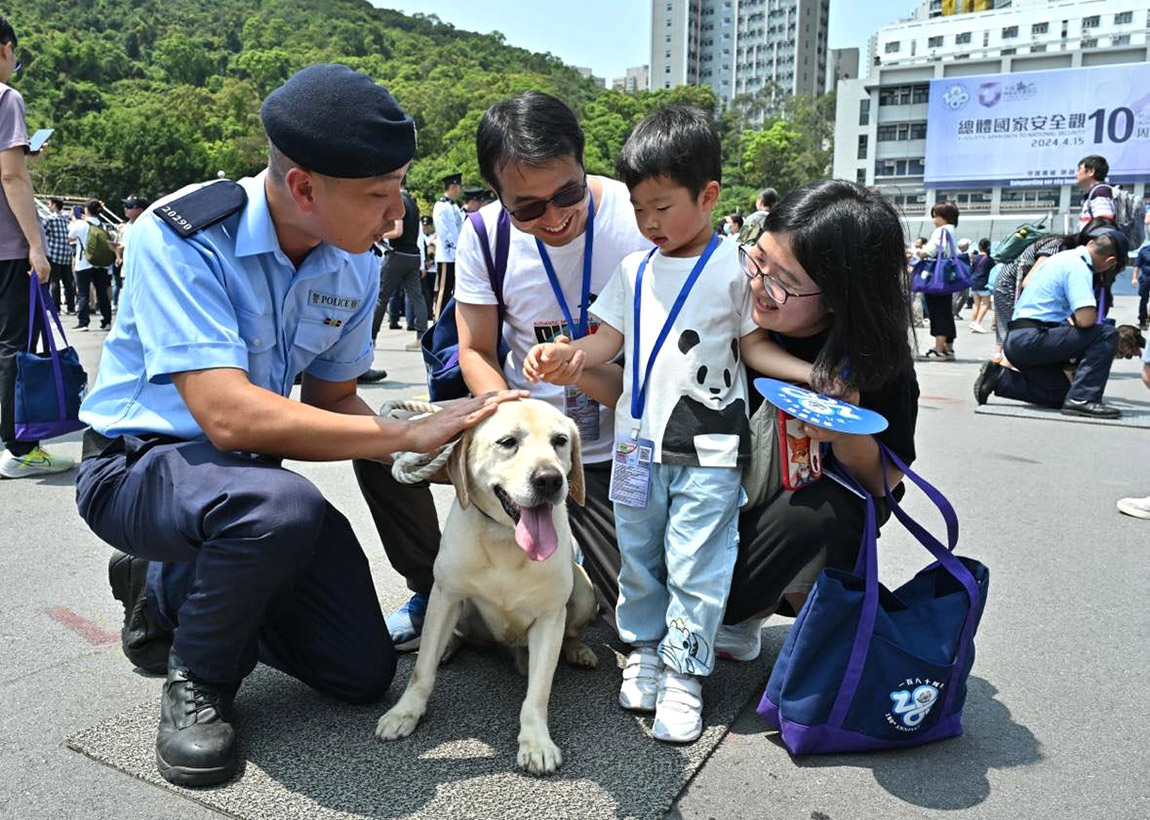
It’s a regular weekday morning at the Hong Kong Police Dog Unit (PDU) Headquarters in the city’s North District. Hippie, a 1-year-old Belgian Malinois, darts around inside the grassy training area of the compound. The dog runs between obstacles and performs a few exercises. Once he is through with his tasks for the day, Hippie looks up to his handler, Police Constable Chong Yuen-chun, for approval. The bond they share is obvious.
Police dogs like Hippie are trained to take on a wide range of duties, from patrol work to more specialized tasks crucial to maintaining law and order in the city. As the PDU celebrates 75 years of service this year, a behind-the-scenes look at the selection and training processes of Hong Kong’s police dogs seems most timely.
READ MORE: Residents feel more secure, confident
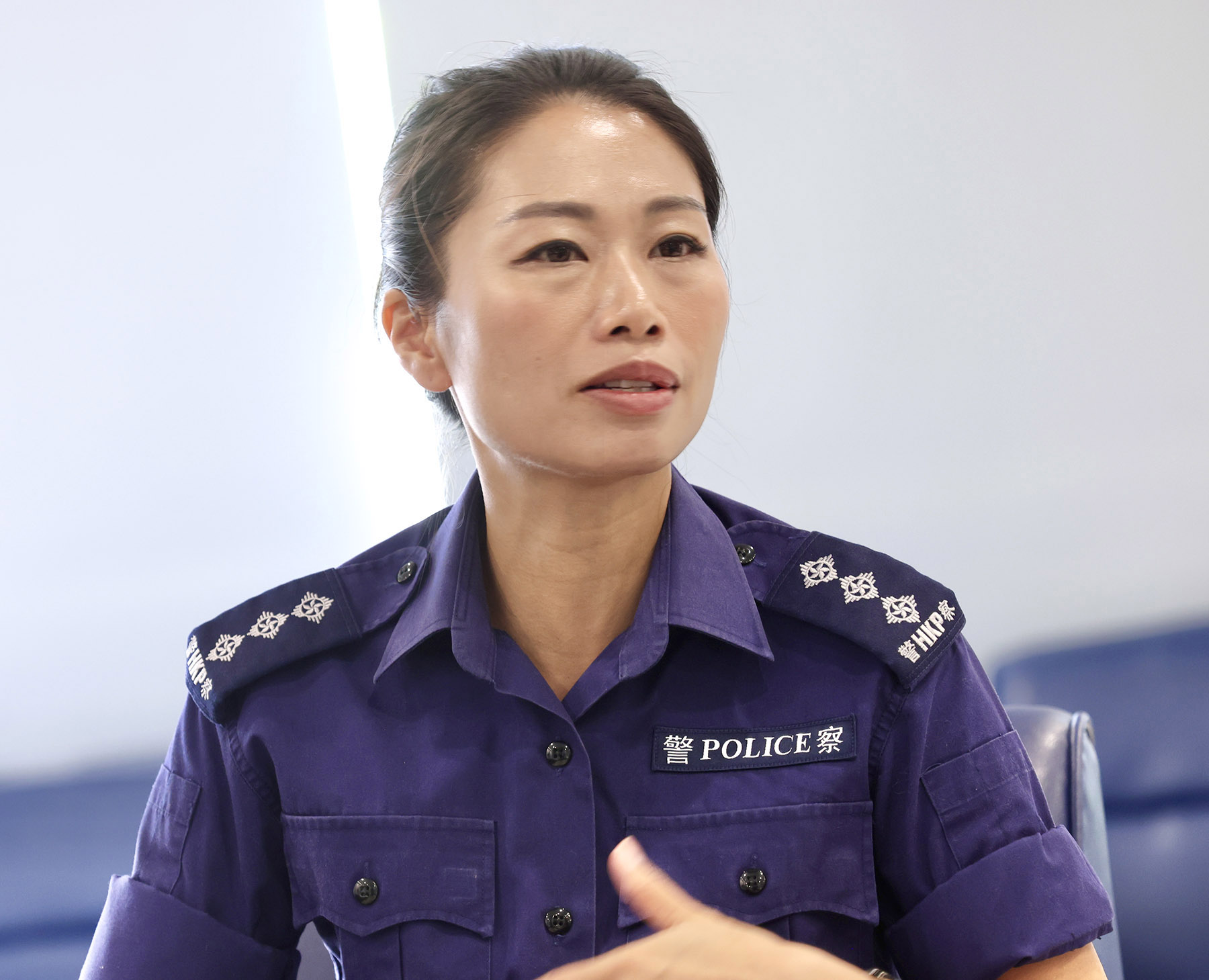
In the beginning
The PDU was started in Fanling in 1949 with just four German shepherds, used for patrol duties. Several relocations later, today the PDU Headquarters is sprawled out over more than 2 hectares of green meadows in Sha Ling, close to the Hong Kong-Shenzhen border. There are over 200 dogs in the unit, with 140 in active service.
“We have our own breeding program,” says PDU Chief Inspector Erica Fan Chin-ting. “We begin by selecting the most suitable dogs — a male and a female — and then conduct X-rays and DNA tests to ensure they are a perfect match.” Besides breeding dogs in-house, the PDU also sources dogs from the Chinese mainland, the United Kingdom and Europe.
By their first birthdays, puppies are started on a basic training program, tailored to the specific roles they are expected to play. Police dogs are categorized by function: patrolling, drug detection, tracking down explosives, and sniffing out arms and ammunition.
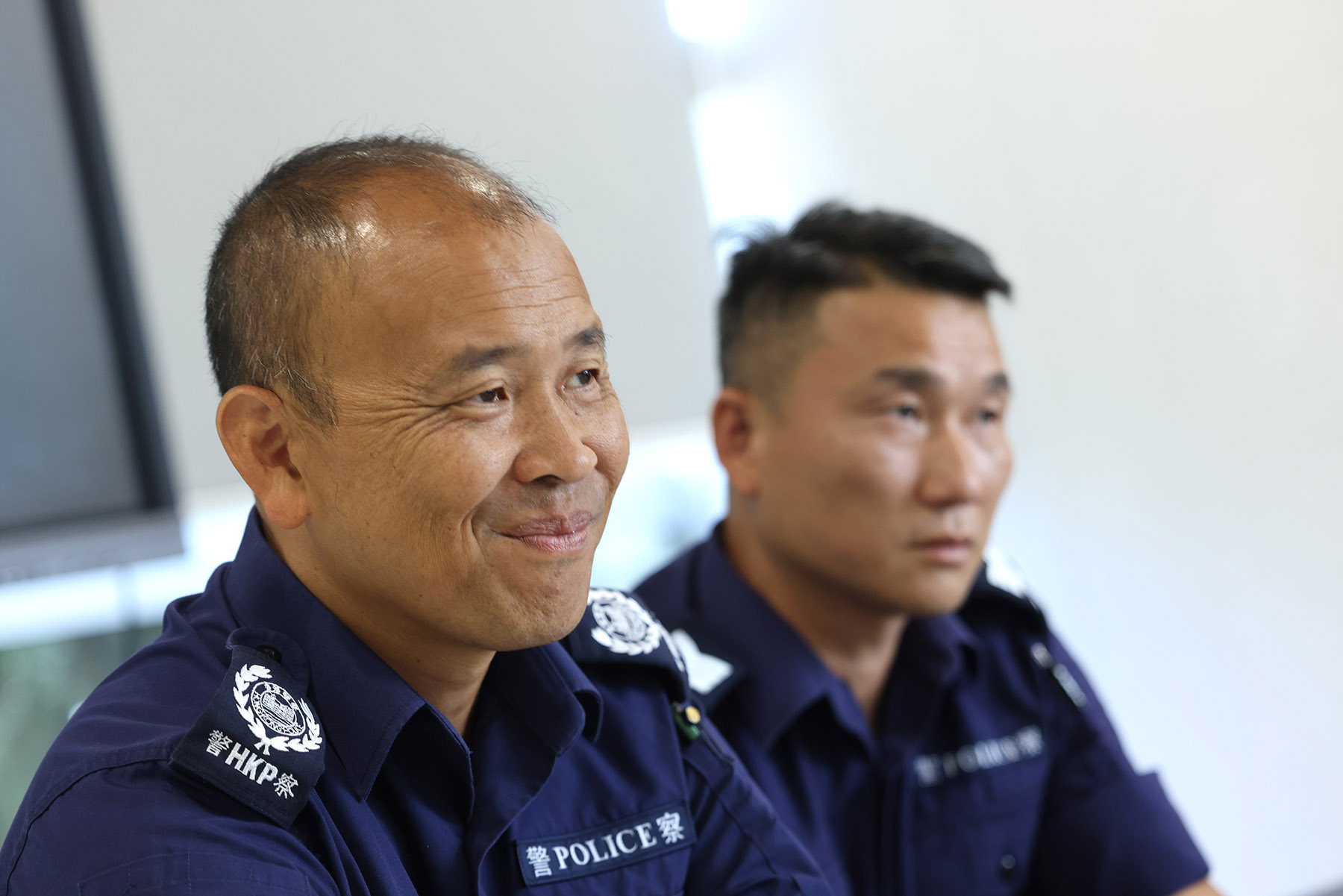
German shepherds, Belgian Malinois and rottweilers are mostly trained to perform patrol duties and help prevent crime. Naturally equipped with an extraordinary sense of smell, Labradors are especially adept at drug detection and tracking down criminals or missing people. Springer spaniels, on the other hand, are typically trained to sniff out explosives and therefore particularly useful at events involving high-profile guests, such as state visits, as well as criminal investigations.
Fan says that both medical assessments of a dog’s physical abilities and its temperament are taken into account before it can be assigned a role. For instance, “for patrol dogs, having a strong drive to hunt down their prey is essential,” she says.
On the other hand, for sniffer dogs, having a playful nature is more critical. “We rely on positive reinforcement techniques during training, which aligns with the psychological approach we use across our programs.”
The sniffer-dog training program lasts three to four months, whereas explosives detection training takes two to three months. In the early stages of the training period, dogs are rewarded with a tennis ball upon successful completion of tasks. Next they are taught how to convey the nature of their findings to their handlers. For example, they are trained to sit quietly when they have sniffed out explosives and show excitement when they find drugs.
Picking up specific scents, like that of explosives or drugs, comes next. The final phase involves putting dogs through dry runs in fictitious crime scenes.
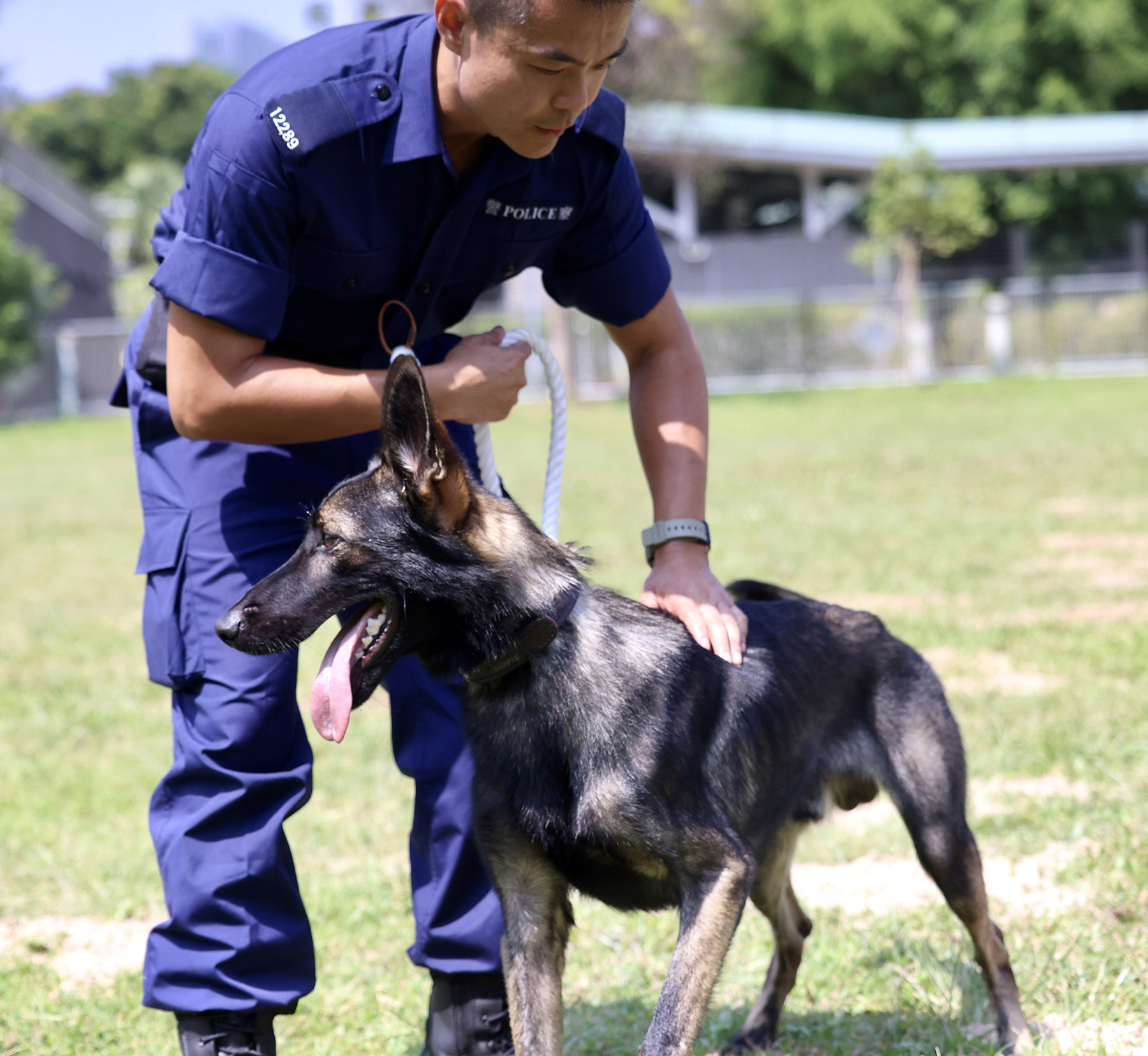
Finding a perfect match
Each trained dog is matched with a member of the Police Force. “We hold a selection process every year for new handlers, but before officers can apply, they need to complete around six to seven years of police work,” Fan says. “It’s crucial that they have experience of working in the patrol subunit, the emergency unit and even the tactical unit. This is essential because if an officer isn’t confident handling situations on the streets, it’s risky to add a dog into the mix.”
Being a dog lover isn’t necessarily an advantage. “Not everyone who claims to love dogs can handle them effectively,” observes Fan. “Once selected, officers must first spend around a year performing kennel duties — handling the more demanding aspects of the job to demonstrate that they are prepared. Not everyone makes it past this phase.”
Successful officers are faced with a fresh set of challenges.
“It takes about two to three weeks for the dog to recognize and bond with its handler,” says Cheung Chung-yin, a sergeant posted at the PDU. Hence, handlers need to work out how to best establish a rapport with their charge.
“Occasionally, dogs may act a bit mischievous and ignore orders during training, so we have to correct their behavior and bring them back on track. That’s where the real difficulty lies,” says Hippie’s handler, Police Constable Chong.
“Establishing a common language between handler and dog is essential, and the process relies heavily on trust,” Fan says. “The handler and the dog need to develop their own unique way of communicating in order to understand one another.”
“Trainers often remind us that handlers can hope to build strong connections with the dogs they are in charge of through playing, pet grooming and exploring new places together,” she adds.
Chan Ping-fung, a station sergeant at the PDU, had a tough start. The Dutch shepherd assigned to him turned out to be strong-willed and noncooperative. He didn’t trust Chan and refused to come out of his kennel when called. It was only after the dog was injured as a result of an attack on Chan’s vehicle and received postsurgical care from his handler that they finally bonded.
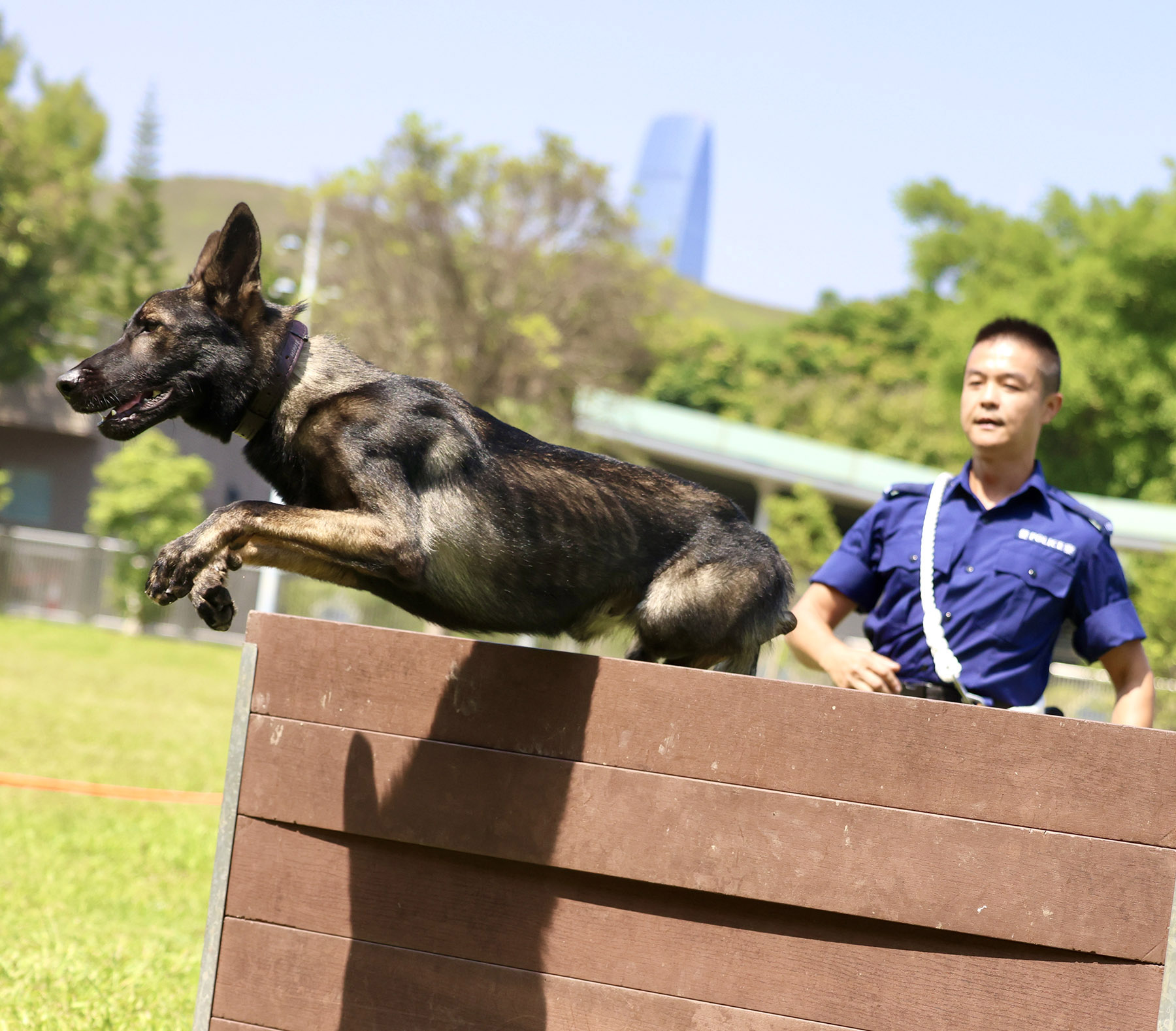
Team spirit counts
During the final stage of training, handlers take the dogs paired with them on an outdoor adventure. They stay in tents erected out in the wild, engage in various activities, such as swimming, and trying to complete challenging tasks as a team.
“I have faced numerous challenges while working with my patrol dog, including having to deal with confrontational and intoxicated individuals,” Chong says. “Learning how to control my dog in complex situations was one of the most significant aspects of my journey in the unit.”
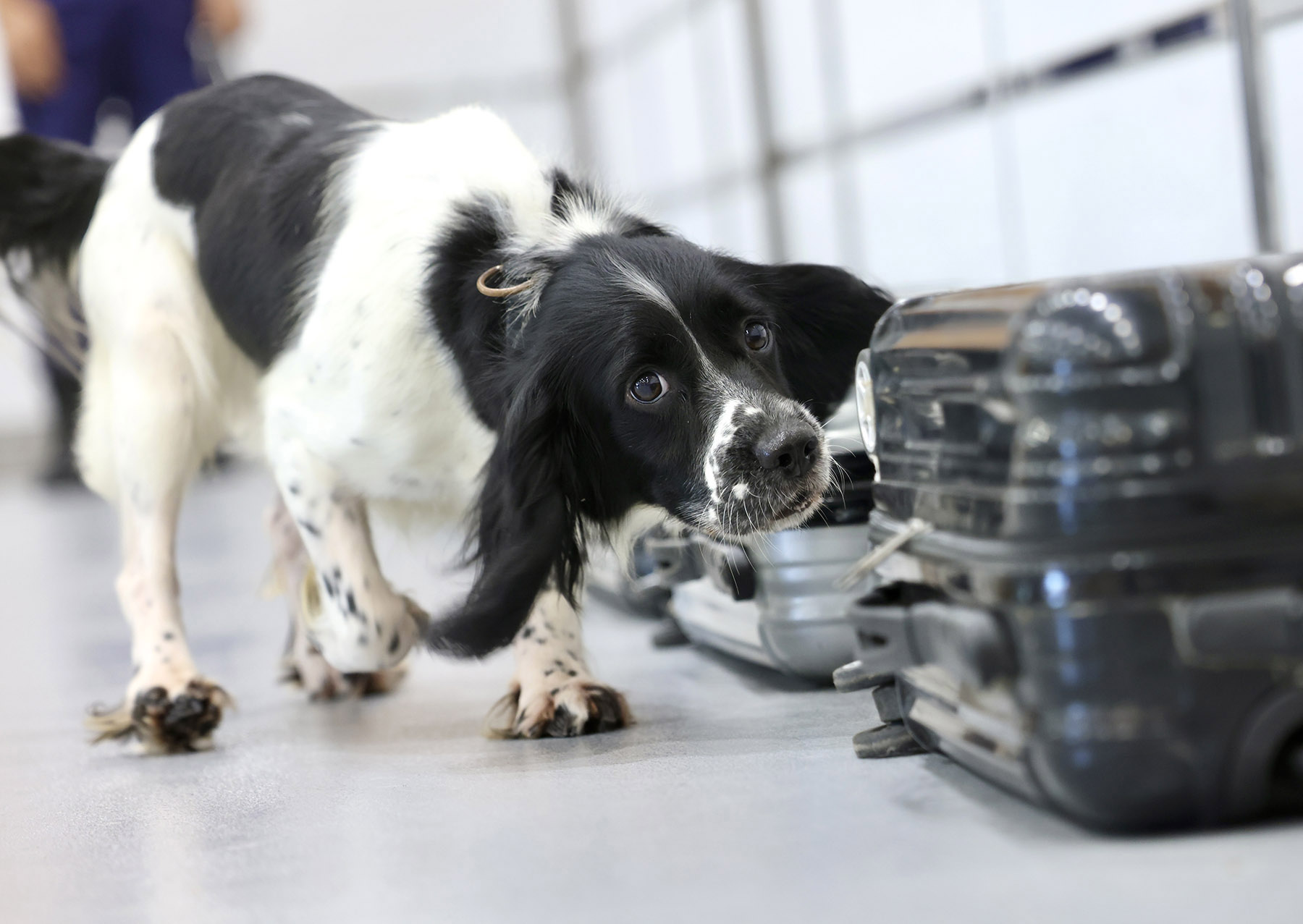
Retirement blues
Police dogs typically retire by the age of 8, though there are exceptions. When handlers are unable to adopt retired dogs, the search for a suitable family begins.
Cheung adopted the Malinois patrol dog he had been in charge of. The dog turned out to be quite a handful once he brought her home. One day, she managed to open the front door of Cheung’s residence and wander outside. Cheung has since installed three extra locks, but the dog keeps trying to escape, given half a chance. “She’s a very smart dog,” her owner says, laughing.

Public relations
Thanks to community engagement efforts by the PDU, there is a growing awareness of police dogs’ roles in protecting the city from crime. Even those who are nervous around dogs appreciate the service rendered by police dogs, especially at public events. Police dogs have been involved in various community outreach programs, like demonstrating their skills to audiences visiting the station. Such events help in generating greater public awareness of the roles played by explosives-detection dogs, for example.
ALSO READ: The pawfect partnership
Many Hong Kong schools are keen to have their students find out more about police dogs. “Most schools welcome us,” Fan says. “Some even adjust their curriculums to fit in our visits.” She adds that certain schools have recently added a section about police dogs into their awareness programs about the role of police in society “because they realized that kids remember more when there’s a dog involved” in the story.


